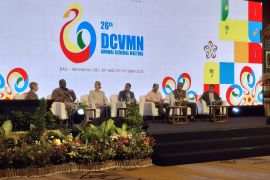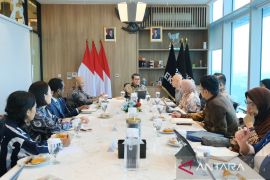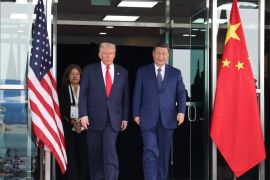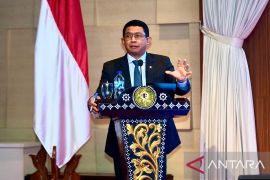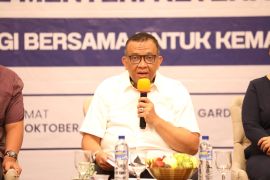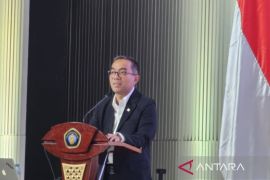The products will sell well in China, but consistency of supply and quality must be maintained."Nanning, Guangxi (ANTARA News) - Indonesia is represented by around 100 stands in the four-day annual China-Asean Expo to open here on Tuesday, Sept 3.
The 100 stands will include 20 units for furniture products, 12 units for canned food and beverages, 12 units for handicraft products, 9 units for consumer goods, and 7 units each for ornaments and house decoration goods, 13 units for garments and 6 units for service goods.
The Expo which is to be held in the Nanning International Convention and Exhibition Center, has 4,600 stands altogether with China alone to have 3,269 units of the stands.
The remaining 1,294 units are for the 10 member countries of ASEAN.
To coincide with the CAEXPO, the China-ASEAN Business and Investment Summit (CABIS) will be held with various activities such as seminars on investment and Business and the signing of a number of agreements or trade contracts and cooperation between the Chinese government and private sectors and ASEAN countries.
Chinese trade director general Yao Jian, in a press briefing here on Monday said there would be various activities such as Round Table Meeting on investment cooperation, infrastructure cooperation forum, other trade and investment promotional activities.
Data available from the Indonesian embassy in Beijing said trade between Indonesia and China has expanded rapidly to follow the trend of regional and international economic growth.
In 2009, the bilateral trade was valued at US$25.5 billion with Indonesia`s exports at US$11.5 billion. The trade value shot up to US$51.1 billion in 2012 with Indonesia`s exports valued at US$21.33 billion favoring China with growing surplus.
Indonesia`s main import commodities included chemicals, fertilizers, processing machines and materials for railway development and the country`s main export commodities are coal, palm oil, natural rubber and nickel ore.
Trade between China and ASEAN also grew significantly -- from US$54.7 billion in 2003 to US$400 billion in 2012.
Indonesian Trade Consul in Beijing Marolop Nainggolan told reporters that Indonesia`s traders have to study the Chinese market to be able to gain more from trade with China.
Indonesia needs to develop tropical fruits such as zalacca palm fruits, kedondong and sawo, which are found only in Indonesia for exports to China, Marolop said.
"The products will sell well in China, but consistency of supply and quality must be maintained," he said.
He said a number of Indonesian commodities have little chance of winning market in China especially manufactured goods that could be easily imitated as China could produce the necessary machines that could turn out goods with lower cost
"They may buy the first shipment of new goods but later they would produce the goods themselves with lower production cost," he said.
(Uu.H-ASG/A/H-YH)
Editor: Priyambodo RH
Copyright © ANTARA 2013

